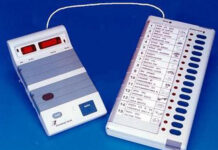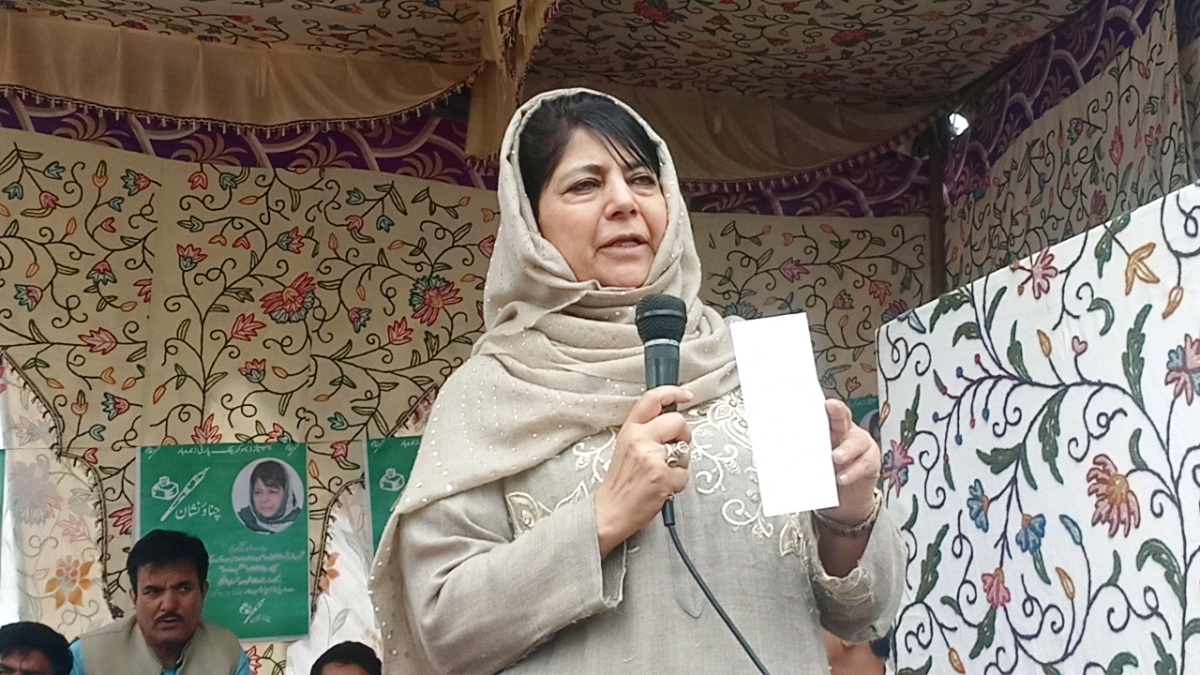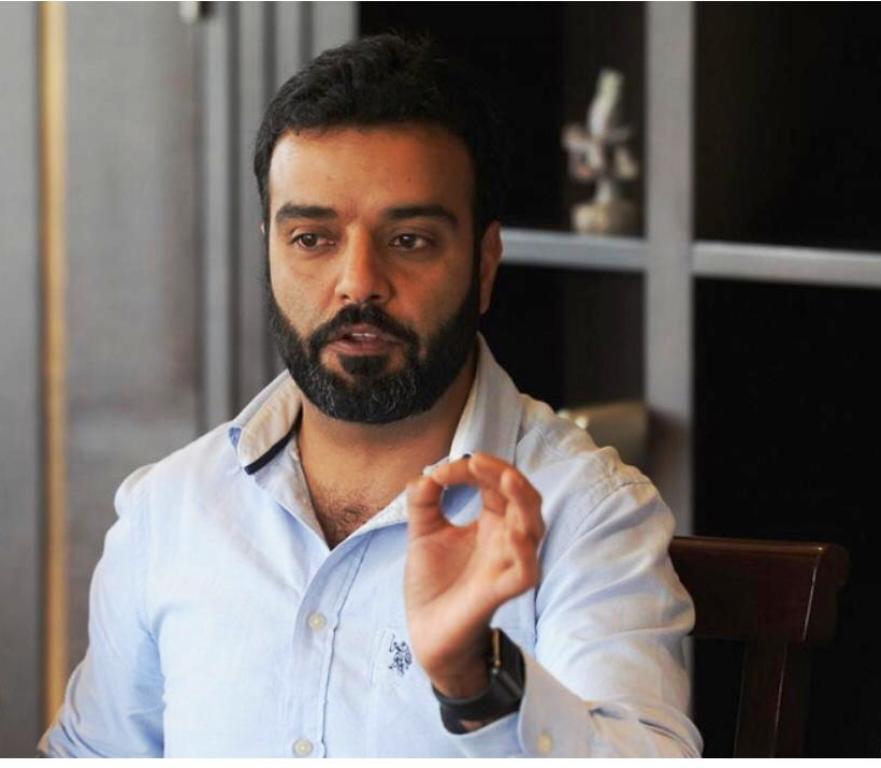As India and Pakistan foreign secretaries hope to pick up the threads in Thimpu, officials in Delhi are skeptic of any major outcome. Retrieving the ground covered during Musharraf era, however seems a far far cry. Iftikhar Gilani reports.
 Suddenly Delhi is abuzz with Pakistani visitors. Be that a group of journalists being hosted by Ministry of External Affairs or former Pakistan Foreign Minister Khursheed Mehmood Kasuri addressing at the government owned Indian Council of World Affairs (ICWA), revealing that both countries had almost covered 85 to 90 percent ground on main issues of Kashmir, Siachen and Sir Creek, implying an agreement was almost round the corner during Pervaiz Musharraf regime.
Suddenly Delhi is abuzz with Pakistani visitors. Be that a group of journalists being hosted by Ministry of External Affairs or former Pakistan Foreign Minister Khursheed Mehmood Kasuri addressing at the government owned Indian Council of World Affairs (ICWA), revealing that both countries had almost covered 85 to 90 percent ground on main issues of Kashmir, Siachen and Sir Creek, implying an agreement was almost round the corner during Pervaiz Musharraf regime.
Officials, however, here are skeptical at the outcome of upcoming foreign secretary level talks between the two countries at Bhutanese capital of Thimpu. They describe these talks as “exploratory” to test waters for furthering engagements. Officials both in Islamabad and Delhi are currently engaged in finalising the agenda for talks.
Sources here say, officials have been in touch over past few weeks over telephones apart from the telephonic conversation between the External Affairs Minister S M Krishna and his counterpart Shah Mehmood Qureshi on last Tuesday to put dialogue process on track.
Notwithstanding, the world pressure to normalise relations, official contacts, so far, have once again highlighted differences in perception and approach to re-rail the process still under pause after 26/11. India believes that smaller steps like decisions on visa protocol, facilitating release of prisoners, consular access and visit of judicial committee and movement of people etc would help in creating an atmosphere to re-start the dialogue process.
Unlike the last July talks between the two foreign ministers, which got embroiled in a controversy, India seems to have acceded to take up the issue of Sir Creek (which is almost near to solution) besides seeking visible and verifiable steps on counter-terrorism. Pakistan, on the other hand, is still struggling to convince India that a joint statement after the talks should reflect the progress on the issues of Kashmir and Siachen as well.
Pakistan is also seeking access to witnesses of the 2008 Mumbai terror attacks to record their statements and information regarding investigations into the Samjhauta train bombings.
“We will have to see reactions from Pakistan side. Visit of Pakistan Foreign Minister to India is also on agenda. We have lots of things to discuss. But we consider these talks at the moment as exploratory,” senior officials told reporters in New Delhi.
Significantly, analysts believe that ahead of Thimpu talks, Foreign Secretary Nirupama Rao, while talking to visiting Afghan journalists has re-enacted what Home Secretary G K Pillai did last July wrecking the forthcoming talks by directly blaming elements in Pakistan government of promoting terrorism. Government sources, however, here rejected the parallels, saying, people on both sides want peace.
While talking to visiting Afghan journalists, Rao accused Pakistan of not doing enough to check the terrorism. “I am sure people of Pakistan want peace. But there are some groups and people who think violence is the way. There are elements in the state of Pakistan who have not done anything (to tackle terror). In fact they have allowed it to grow,” she said.
“Pakistan has created the Frankenstein. They will have to deal with it. The sickness is there. They have to cure it. They have to root out this evil,” she added. She said India was not blaming Pakistan without any reason.
“People shouldn’t think that we are attacking Pakistan. The Mumbai attack is an evidence. The terrorists who attacked Mumbai in 2008 were from Pakistan. Kasab, the lone surviving gunman in the attack, is a Pakistani,” she said.
As talks resume, it is still to be seen whether both countries would pick up threads from Pervez Musharraf era. While India, says, it has not repudiated the past progress, but talks of new realities. Current Pakistan government is still avoiding to tag the peace process to Musahrraf even as process gets momentum, they may agree to revisit the process.
Kasuri told a gathering of strategists here that both governments had agreed on issues of demilitarization – gradual demilitarization in consonance with the situation on the ground, as the situation improved the troops would be withdrawn, very few would remain. Another element was there would be a joint mechanism (for governance). The joint mechanism would have Kashmiris from both sides of the Line of Control and some form of association of the Indians and Pakistanis, this was one of the areas still being discussed.
 He further said the most important element was self-governance. And the Kashmiris would have self-governance to the maximum extent and it would be the same on both parts of the Line of Control. “That was basically the crux of it. It took two-and-a-half to three years to work out the details of it…. And I think the only thing that prevented it was that, there were elections in India (in late 2006), otherwise the first window of opportunity could have been the end of 2006,” he said Pakistan understood Prime Minister Manmohan Singh’s constraints, that he was involved in elections.
He further said the most important element was self-governance. And the Kashmiris would have self-governance to the maximum extent and it would be the same on both parts of the Line of Control. “That was basically the crux of it. It took two-and-a-half to three years to work out the details of it…. And I think the only thing that prevented it was that, there were elections in India (in late 2006), otherwise the first window of opportunity could have been the end of 2006,” he said Pakistan understood Prime Minister Manmohan Singh’s constraints, that he was involved in elections.
“We suggested March (2007), I wish we had suggested February, because in March all hell broke loose in Pakistan when the (Pakistani) chief justice (Iftikhar Chaudhry) was sacked and lawyers were out on the streets. It was no use discussing further details because I felt you needed a much better atmosphere for the resolution of the Kashmir dispute… I was very happy that we had achieved so much because the next government could start from where we left. Now at least the two governments know the bottom lines, which is a very good thing (for future talks),” he revealed.
Both sides had planned that during the visit of Prime Minister Dr. Manmohan Singh, an agreement on Sir Creek would be signed.
“In fact that is what we would have done when the Prime Minister (Manmohan Singh)… we had planned that when he visits Pakistan that is what he would sign. When he signed that, we thought we would get enough impetus to resolve the 10-15 percent that was left behind on Kashmir. The important thing was there would be a review after 15 years so that it could be improved in the light of the experience. The foreign ministers would meet annually to take stock of the progress being made under the agreement. Siachen, I think, has been ready for signature for many years now,” said Kasuri.
On whether Pakistani army was on board, former Pakistan Foreign Minister said the vice-chief of army staff attended every meeting, General (Ashfaq Parvez) Kayani was the director general of the ISI (Inter-Services Intelligence), he attended every meeting, nothing on Kashmir went through without them sitting in on meetings.
The recent WikiLeaks also show that former US ambassador to Pakistan, Anne Patterson, spoke to Kasuri and then she spoke to General Kayani. She told General Kayani that Khurshid Kasuri, wanted Riaz Mohammad Khan continue with the back channel talks now that the government had changed. He agreed that not just the back channel should continue, but also to suggestion of interlocutor (of Khan being the Pakistani interlocutor).















